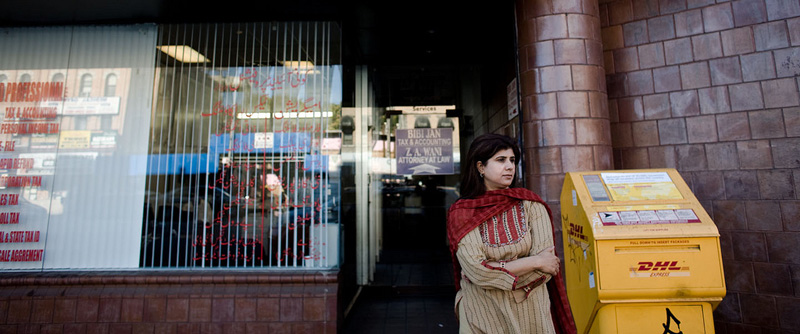In Midwood’s Little Pakistan, women defy tradition, gossip, fear and poverty to run thriving businesses
in their immigrant community
Sixty years old and balding, Mr. Choudhary sits comfortably in his storefront insurance brokerage on Coney Island Avenue. He is hunched over his desk, squinting to read the tiny text of a newspaper in front of him, when a stranger steps into his office. The passer-by is lost, and asks Mr. Choudhary if he knows the directions to a nearby accounting firm, run by a woman named Bazah Roohi.
Mr. Choudhary’s left eyebrow shoots up as he stares quizzically at the stranger. A slow, sly smile crawls onto his face. He has heard of this woman and her accounting firm. Along with a handful of other Pakistani women who have recently started their own businesses, she has been causing quite a stir within the conservative Pakistani community of the Brooklyn neighborhood of Midwood.
Mr. Choudhary lets out a chuckle, echoed by two of his male colleagues seated at the desks beside him. He seems bemused by the new trend taking over Midwood. Just like the accounting lady, another woman recently opened a fabric store across the street from his firm. A couple of stores to the left on his street, a woman named Meena runs Meena Jewelers alongside her husband.
In the past decade these women have managed to break into the developing entrepreneurial arena of this section of Brooklyn, popularly known as Little Pakistan. The area has recently seen the rise of a professional class, which was at first strictly male-dominated. Midwood’s men still primarily work as yellow-cab and limo drivers, and as shop keepers. But now some women in this community are breaking out of the typical role of the “housekeeper” of a Pakistani immigrant family and home. Now, they are competition.
Still silent, Mr. Choudhary swings his arm right, towards the accounting firm, directing the stranger. “Don’t ask her her age or marriage status,” calls out Choudhary, snickering from behind, “She’s still single.”

